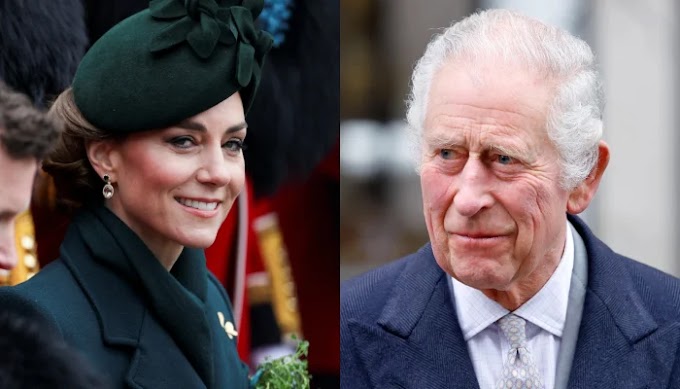She wanted the statement “toughened up,” says a new book.
"Never complain, never explain," might be the royal family's motto when it comes to scandal, but the allegations dropped during Meghan Markle and Prince Harry's Oprah interview were just too big for them to sweep under the rug.
So, a few days later, Buckingham Palace released a 61-word
statement in response, which read: “The whole family is saddened to learn
the full extent of how challenging the last few years have been for Harry
and Meghan. The issues raised, particularly that of race, are concerning.
While some recollections may vary, they are taken very seriously and will be
addressed by the family privately."
Recollections. May.
Vary. Those three words, as simple as they may be, made an everlasting
impact. And according to a new book, Courtiers: The Hidden Power Behind the
Crown by Valentine Low, Kate Middleton is the one who insisted on using the
memorable phrase.
Per a Palace insider, the Firm had "a much milder
version" of the "recollections" sentence, but Kate and Prince William wanted
it "toughened up."
"The debate was, do you rise entirely above it
and offer the olive branch of [Harry and Meghan being] ‘much-loved members
of the family'? Or is there some moment when you have to intervene and offer
a view?" the source shared with Low, adding that William and Kate thought
the Palace "needed something that said the institution did not accept a lot
of what had been said."
"It was Kate who clearly made the point, ‘History will
judge this statement and unless this phrase or a phrase like it is included,
everything that they have said will be taken as true,'" another source
shared. “She does not get as much credit as she should, because she is so
subtle about it. She is playing the long game. She has always got her eye
on, ‘This is my life and my historic path and I am going to be Queen one
day.'"
While Kate pushed for the "recollections may vary" line to
be used, Prince William's secretary Jean-Christophe Gray was actually the
one responsible for writing it. Though, others have attributed it to Sir
Clive Alderton, King Charles's private secretary.












